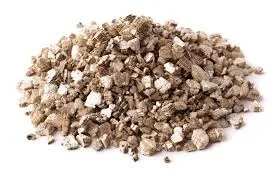Jul . 12, 2024 11:44 Back to list
Insulation material options for chiller piping in manufacturing facilities
Insulation material for chiller piping is a crucial component in the operation of any chiller system. Chiller systems are commonly used in industrial and commercial buildings to provide cooling for various processes and equipment. The pipes that transport the chilled water throughout the system need to be properly insulated to ensure maximum efficiency and performance.
There are several different types of insulation materials that can be used for chiller piping, each with its own set of benefits and considerations. The most common types of insulation materials used for chiller piping include foam glass, polyurethane foam, and mineral wool.
Foam glass insulation is a lightweight and durable material that is made from recycled glass. It is noncombustible and provides excellent thermal insulation properties. Foam glass insulation is a popular choice for chiller piping because it is easy to install and has a long service life.
Polyurethane foam insulation is another popular choice for chiller piping. It is a synthetic material that is lightweight, flexible, and has excellent thermal insulation properties. Polyurethane foam insulation is also resistant to moisture and can help prevent condensation from forming on the pipes.
Mineral wool insulation is a versatile material that is made from natural rock or slag

insulation material for chiller piping factory. It is noncombustible and provides excellent thermal and acoustic insulation properties. Mineral wool insulation is commonly used for chiller piping in industrial settings where fire safety is a concern. When choosing an insulation material for chiller piping, it is important to consider factors such as the operating temperature of the system, the surrounding environment, and the required insulation thickness. The insulation material should be selected based on its ability to provide the necessary thermal insulation, as well as its resistance to moisture, chemicals, and fire. Proper insulation of chiller piping is essential for maintaining the efficiency and performance of the chiller system. Inadequate insulation can result in energy loss, increased operating costs, and reduced system reliability. By selecting the right insulation material and ensuring proper installation, the chiller system can operate at peak performance and provide reliable cooling for industrial and commercial applications. In conclusion, insulation material for chiller piping plays a critical role in the operation of chiller systems. Choosing the right insulation material is essential for ensuring optimal performance, energy efficiency, and system reliability. By selecting a high-quality insulation material and following best practices for installation, chiller piping can be effectively insulated to meet the demands of industrial and commercial cooling applications.

insulation material for chiller piping factory. It is noncombustible and provides excellent thermal and acoustic insulation properties. Mineral wool insulation is commonly used for chiller piping in industrial settings where fire safety is a concern. When choosing an insulation material for chiller piping, it is important to consider factors such as the operating temperature of the system, the surrounding environment, and the required insulation thickness. The insulation material should be selected based on its ability to provide the necessary thermal insulation, as well as its resistance to moisture, chemicals, and fire. Proper insulation of chiller piping is essential for maintaining the efficiency and performance of the chiller system. Inadequate insulation can result in energy loss, increased operating costs, and reduced system reliability. By selecting the right insulation material and ensuring proper installation, the chiller system can operate at peak performance and provide reliable cooling for industrial and commercial applications. In conclusion, insulation material for chiller piping plays a critical role in the operation of chiller systems. Choosing the right insulation material is essential for ensuring optimal performance, energy efficiency, and system reliability. By selecting a high-quality insulation material and following best practices for installation, chiller piping can be effectively insulated to meet the demands of industrial and commercial cooling applications.
Latest news
-
Fe-C Composite Pellets for BOF: Enhance Steelmaking Efficiency
NewsAug.07,2025
-
Eco-Friendly Granule Covering Agent | Dust & Caking Control
NewsAug.06,2025
-
Fe-C Composite Pellets for BOF: High-Efficiency & Cost-Saving
NewsAug.05,2025
-
Premium Tundish Covering Agents Exporters | High Purity
NewsAug.04,2025
-
Fe-C Composite Pellets for BOF | Efficient & Economical
NewsAug.03,2025
-
Top Tundish Covering Agent Exporters | Premium Quality Solutions
NewsAug.02,2025
